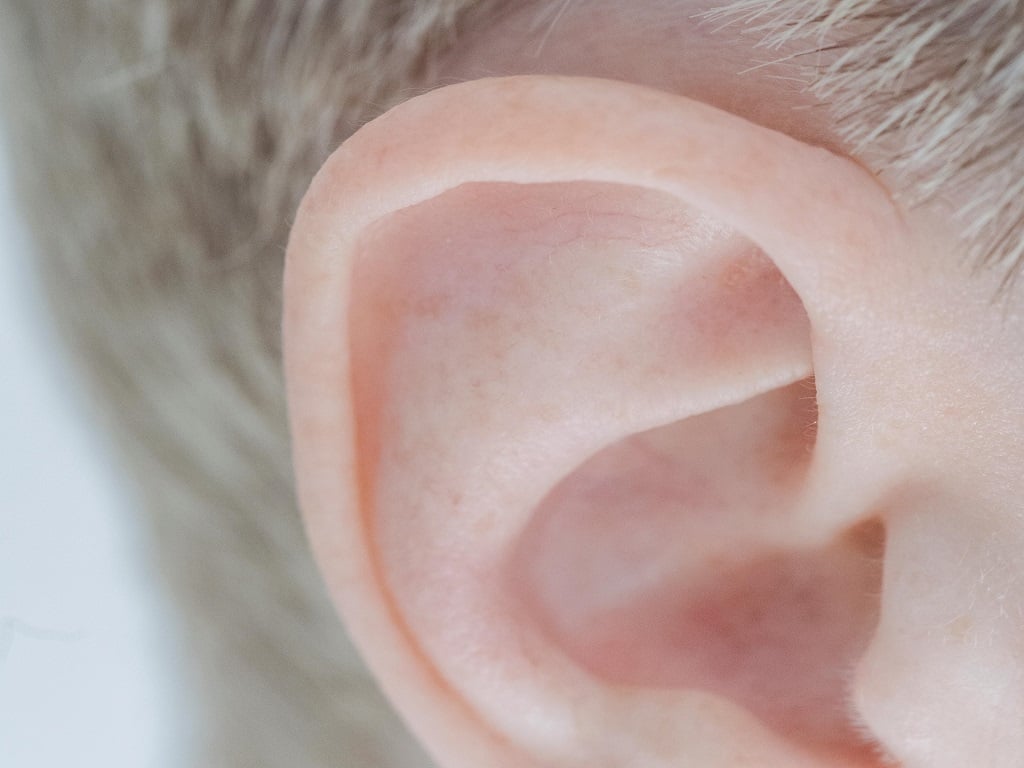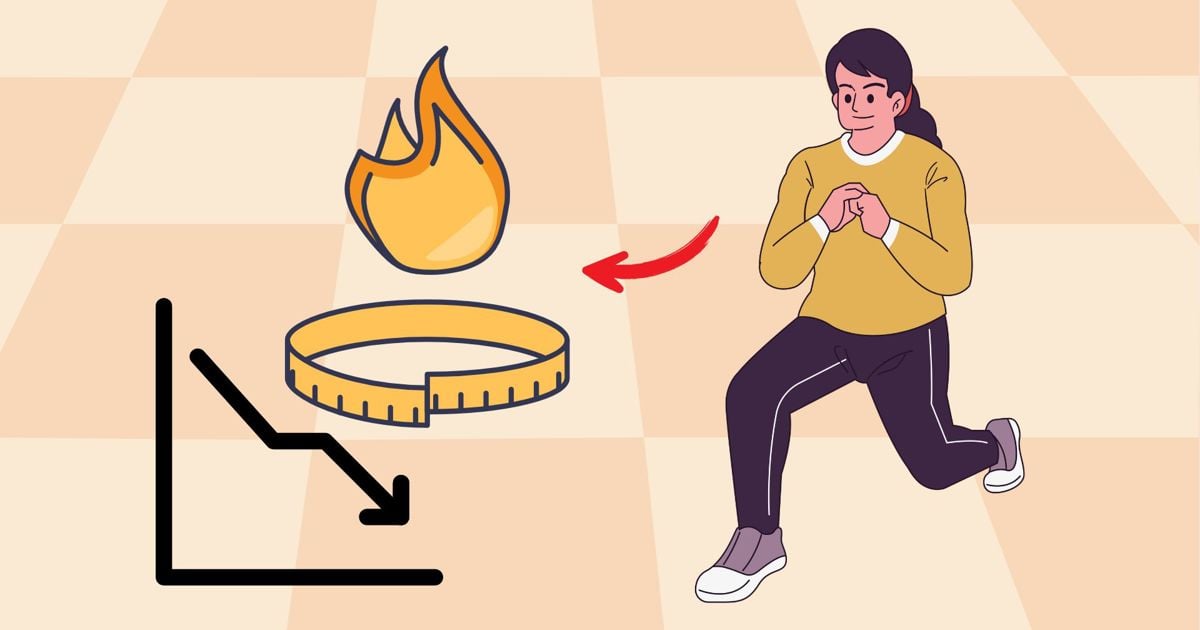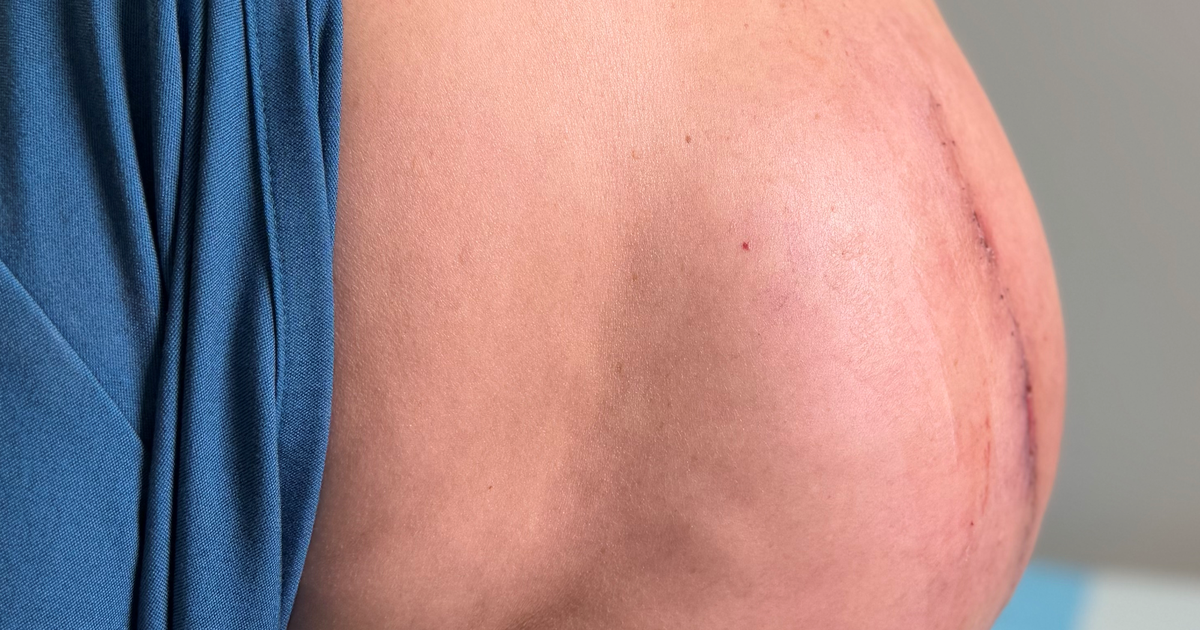Start your day with health news , readers can also read more articles: ...
3 changes in the ear that signal symptoms of type 2 diabetes
Type 2 diabetes causes high blood sugar levels. Symptoms include increased thirst, frequent urination, and fatigue. Some ear abnormalities can also occur.
Type 2 diabetes mainly occurs in people over 40 years of age. However, in recent years, many younger people are being diagnosed with diabetes. Detecting and controlling the disease is extremely important to prevent damage to blood vessels, nerves and other important organs.

Long-term high blood sugar can cause hearing loss
Changes in the ear that can be a warning sign of diabetes include:
Recurrent ear infections. There are many causes of ear infections, and one of them is type 2 diabetes. Long-term high blood sugar damages the blood vessels in the inner ear, affecting blood circulation and nerve signals to the ear.
The result of this condition is a decrease in the ear's immunity, making it susceptible to recurring infections. Persistent and slow-healing ear infections may require surgical intervention.
Tinnitus. Tinnitus is not a common symptom of type 2 diabetes. However, high blood sugar can aggravate this condition. This is because high blood sugar has a negative impact on the cochlea, leading to tinnitus. Readers can read more about this article on the health page on October 20.
Why diet and exercise but still gain weight?
To lose weight, people often start with diet and exercise. Meals should be healthy and low in calories. However, it is not uncommon for the body to gain a little weight before actually losing weight.
In fact, when you start eating healthy and exercising, your body weight will increase slightly. This is completely normal because your body is adapting. Don't be discouraged because after this period, your body weight will start to decrease.

When you first start dieting and exercising, your body may gain a little weight, then lose it.
The reasons why the body gains weight and then loses weight include:
Water retention response. When you first start exercising regularly, your body automatically stores more glycogen. This is a biological response to more efficiently provide the energy your muscles need to function.
However, because glycogen binds to water, storing more glycogen also means the body will store more water. Glycogen binds to water in a 1:3 ratio, meaning that for every gram of glycogen the body stores, it will store 3 grams of water. The result is a slight weight gain.
Inflammation causes fluid retention. For beginners, muscle fibers are damaged by increased intensity. Microscopic tears in the muscles cause inflammation and pain. To heal the tears, the body retains water. This results in temporary weight gain. The next content of this article will be on the health page on October 20 .
Sitting a lot is not good, so is standing a lot okay?
Many people believe that standing more will limit the harmful effects of a sedentary lifestyle due to sitting a lot while working, studying... However, their efforts may not bring the expected results.
New research, just published in the medical journal International Journal of Epidemiology , has found that in the long term, standing more than sitting does not improve cardiovascular health and may actually increase the risk of blood circulation problems .
The study, conducted by scientists at the University of Sydney (Australia), included 83,013 participants who did not have heart disease at the start of the study.

Standing a lot does not improve heart health and may increase the risk of blood circulation problems due to prolonged standing.
The authors used data on new-onset heart disease and circulatory disease collected over a period of 7 to 8 years from the participants, to investigate the impact of prolonged sitting and prolonged standing on cardiovascular disease. These data were measured using a wearable device similar to a smartwatch.
The results found that in the long term, standing does not improve cardiovascular health - including coronary heart disease, stroke and heart failure, but may increase the risk of blood circulation problems caused by prolonged standing, such as varicose veins and deep vein thrombosis .
However, the results show that standing a lot does not increase the risk of cardiovascular disease. Start your day with health news to see more content of this article!
Source: https://thanhnien.vn/ngay-moi-voi-tin-tuc-suc-khoe-nhung-bieu-hien-o-tai-canh-bao-benh-tieu-duong-185241019213857738.htm


![[Photo] Closing of the 4th Summit of the Partnership for Green Growth and the Global Goals](https://vstatic.vietnam.vn/vietnam/resource/IMAGE/2025/4/17/c0a0df9852c84e58be0a8b939189c85a)
![[Photo] National Assembly Chairman Tran Thanh Man meets with outstanding workers in the oil and gas industry](https://vstatic.vietnam.vn/vietnam/resource/IMAGE/2025/4/17/1d0de4026b75434ab34279624db7ee4a)
![[Photo] Nhan Dan Newspaper announces the project "Love Vietnam so much"](https://vstatic.vietnam.vn/vietnam/resource/IMAGE/2025/4/17/362f882012d3432783fc92fab1b3e980)
![[Photo] General Secretary To Lam receives French Ambassador to Vietnam Olivier Brochet](https://vstatic.vietnam.vn/vietnam/resource/IMAGE/2025/4/17/49224f0f12e84b66a73b17eb251f7278)
![[Photo] Promoting friendship, solidarity and cooperation between the armies and people of the two countries](https://vstatic.vietnam.vn/vietnam/resource/IMAGE/2025/4/17/0c4d087864f14092aed77252590b6bae)

























![[Photo] Welcoming ceremony for Chinese Defense Minister and delegation for friendship exchange](https://vstatic.vietnam.vn/vietnam/resource/IMAGE/2025/4/17/fadd533046594e5cacbb28de4c4d5655)



























![[Video] Viettel officially puts into operation the largest submarine optical cable line in Vietnam](https://vstatic.vietnam.vn/vietnam/resource/IMAGE/2025/4/17/f19008c6010c4a538cc422cb791ca0a1)






































Comment (0)